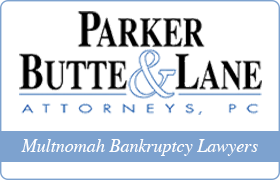Troutdale Bankruptcy & Debt Lawyer, Oregon
Sponsored Law Firm
-
 x
x

Click For More Info:
Parker, Butte & Lane
-
Parker Butte & Lane
1336 E Burnside St Ste 200 Portland, OR 97214 » view mapPortland, OR Bankruptcy Lawyer Changing Lives, One Case At A Time
Our attorneys provide complete and personalized representation and counsel for corporate and nonprofit clients as well as for individuals.
800-811-9561  Richard J. Parker Portland, OR
Richard J. Parker Portland, ORAttorney At Law - OR, 1980
Golden Gate University School of Law
FREE CONSULTATION
CONTACTMatthew A. Casper
Litigation, Consumer Protection, Dissolution, Commercial Bankruptcy
Status: In Good Standing
FREE CONSULTATION
CONTACTFREE CONSULTATION
CONTACTLillian Suelzle Watson
Mediation, Arbitration, Family Law, Divorce & Family Law, Bankruptcy & Debt
Status: In Good Standing Licensed: 24 Years


 Richard J. Parker Portland, OR
Richard J. Parker Portland, OR
